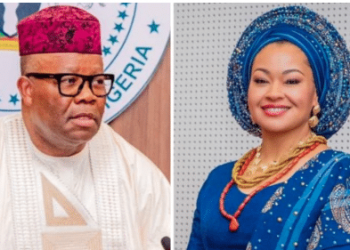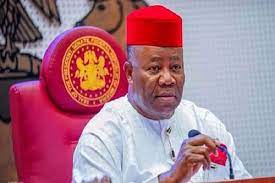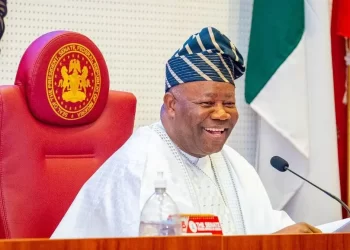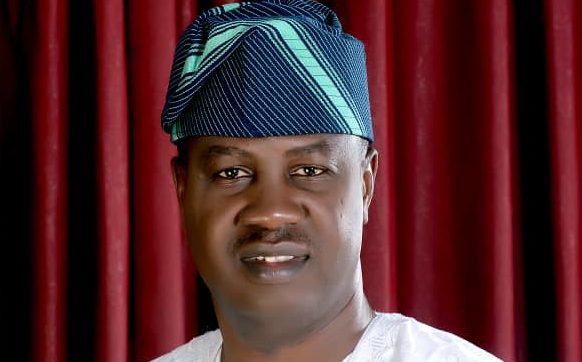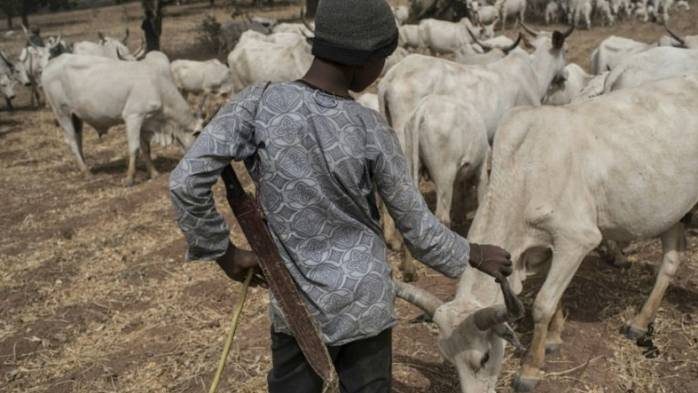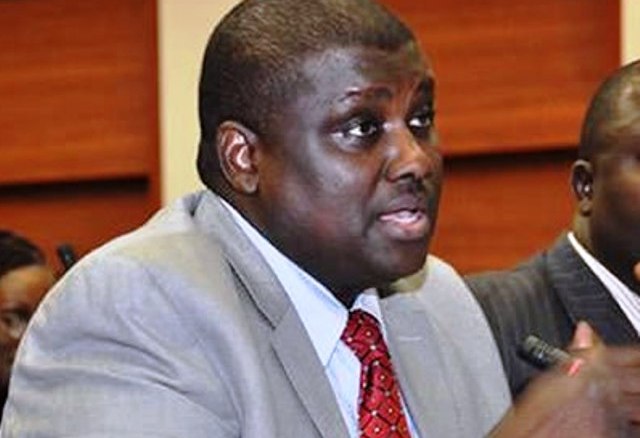The Federal Government has reiterated its unwavering commitment to strengthening cancer control efforts across Nigeria.
Dr. Tunji Alausa, the Minister of State for Health, made this known on Monday in Abuja during the Impact Review Mission Team’s visit to Nigeria.
Alausa highlighted the critical need for an enhanced cancer management system in the country, citing alarming statistics that reveal nearly 288,000 cancer cases nationwide.
He expressed gratitude to the international health organisations supporting Nigeria’s cancer control efforts.
He said that President Bola Ahmed Tinubu was dedicated to healthcare reforms, adding that the Federal Government has prioritised health sector investments.
“The President has demonstrated a significant commitment to ensuring that all Nigerians receive adequate healthcare,” he said.
Alausa acknowledged the pressing challenges in Nigeria’s cancer care system, pointing out the limited availability of critical diagnostic and treatment infrastructure.
“For a country of over 220 million people, we currently have only one positron emission tomography (PET) scanner and no cyclotrons for isotope production.
“Furthermore, we only have a few linear accelerators,” he said.
He outlined several strategic initiatives, including to address the gaps.
The minister called for the establishment of the National Institute of Cancer Research and Treatment (NICRAT) as the cornerstone of Nigeria’s cancer programme, integrating research, prevention, and treatment.
He also called for the construction of six new cancer treatment centers across all geopolitical zones and nine diagnostic centers nationwide to improve access to care.
He also underscored the importance of evidence-based interventions.
He revealed plans to bolster Nigeria’s human resources for cancer care through specialised training.
“We are committed to strengthening our capacities and addressing the unique cancer types prevalent in Nigeria through comprehensive research and treatment.
“We have commissioned a postgraduate training institution to ensure that healthcare professionals are equipped with the necessary skills to tackle cancer effectively.
We are focusing on nuclear medicine and interventional radiology,” he said.
The Minister highlighted the collaborative efforts with international stakeholders, including the International Atomic Energy Agency (IAEA), the World Health Organisation (WHO), and the International Agency for Research on Cancer (IARC).
He said that the partnerships were critical in ensuring access to the latest technologies and treatment options.
“We are leveraging global support to enhance our cancer treatment capabilities.
“For example, through our partnerships, we are now able to source monoclonal antibody therapies like nivolumab, which are crucial for treating metastatic cancers,” he said.
He added that the Nigerian government was in talks with pharmaceutical companies to secure discounted medications and donations of advanced cancer therapies.
He said that government had introduced a digital platform that would provide real-time information to help patients find the nearest accredited treatment facilities.
“We are building a technology platform where every Nigerian can log on and find certified cancer treatment centers.
“This platform will list pre-accredited hospitals and oncologists across the country.
“This initiative is part of a broader strategy to streamline cancer care and ensure equitable access across the country,” he said.
Additionally, the minister shared recent successes in cancer prevention, particularly in cervical cancer screening and the HPV vaccination programme.
“We have had one of the best rollouts of the HPV vaccination in the world, achieving nearly 85 per cent of our target population.
“These efforts are vital in reducing the long-term burden of cancer in Nigeria,” Alausa said.
As the nation continues to grapple with rising cancer cases, he reaffirmed the government’s commitment to building a robust healthcare system that ensures access to comprehensive cancer care for all Nigerians.
“We are making informed decisions and utilising global best practices to advance our cancer control programme,” he said.
Prof. Usman Aliyu, Director-General of the National Institute for Cancer Research and Treatment (NICRAT), expressed the country’s honour in welcoming experts from the IAEA who were tasked with conducting an impact review mission in Nigeria.
“Honourable Minister, when your administration began and NICRAT was newly established, we sought an appraisal of Nigeria’s preparedness for cancer control,” Aliyu said.
He explained that this led to a collaboration with the IAEA to assess the strengths, weaknesses, opportunities, and threats related to effective cancer control in Nigeria.
According to him, the IAEA responded positively to the country’s request and approved the mission.
“As part of this initiative, we assembled a team of experts who began their assessment approximately three months ago through a series of virtual meetings,” he said.
Ms Ilaura Haskins, IAEA representative, said that the IAEA commenced its In-Country Mission for Nigeria’s Impact Review on cancer control, with a formal opening ceremony.
Haskins, a senior official from the IAEA, expressed her appreciation for the Nigerian government’s commitment to prioritising cancer control initiatives.
She acknowledged the significant progress made since the previous impact review in 2011, commending the government’s efforts to strengthen cancer control activities.
“The goal of the impact review is to conduct a comprehensive analysis of the current situation regarding cancer control in Nigeria, assessing the country’s capacities and needs,” she stated.
According to her, the mission is a collaborative effort involving the IAEA, the World Health Organisation (WHO), and the International Agency for Research on Cancer (IARC).
“Together, these organisations aim to provide a robust situational analysis, which will culminate in a report containing evidence-based recommendations for the Nigerian ministry of health,” she said.
She said that the impact review would cover the entire cancer control continuum, including prevention, early detection, diagnosis, treatment, and palliative care.
She highlighted the importance of tailoring the assessment to Nigeria’s specific needs and objectives.
“According to her, the process is designed to ensure that the recommendations we make are the most accurate for the context.
She said that the IAEA’s initiative aligned with several global cancer initiatives, including the Rays of Hope initiative and the WHO’s focus on breast, cervical, and childhood cancers.
She said that the findings from the mission could inform strategic documents for policy and research mobilisation, ultimately contributing to improved cancer control in Nigeria.
While the official activities have just begun, she revealed that preparatory work had been ongoing for the past month, involving close collaboration with national and international teams.
She expressed appreciation at the diverse expertise assembled within the national team, recognising their contributions to the mission.
The News Agency of Nigeri (NAN) reports that as the mission progresses over the next two weeks, the experts team will validate collected data and deepen their understanding of Nigeria’s cancer control landscape.
A final report will be delivered to the ministry of health, outlining key insights and recommendations for advancing cancer care in the country.(NAN)


